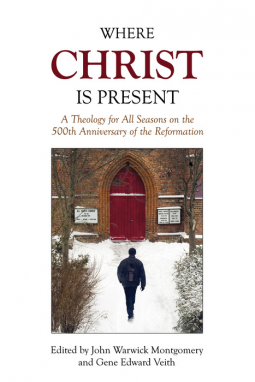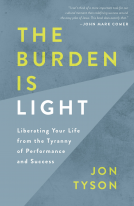
Where Christ is Present
A Theology for All Seasons on the 500th Anniversary of the Reformation
by John Warwick Montgomery and Gene Edward Veith
This title was previously available on NetGalley and is now archived.
Send NetGalley books directly to your Kindle or Kindle app
1
To read on a Kindle or Kindle app, please add kindle@netgalley.com as an approved email address to receive files in your Amazon account. Click here for step-by-step instructions.
2
Also find your Kindle email address within your Amazon account, and enter it here.
Pub Date Apr 22 2015 | Archive Date Aug 24 2015
Description
A Note From the Publisher
Edited by: John Warwick Montgomery and Gene Edward Veith
Title available in Hardcover (978-1-945500-03-9), Paperback (978-1-945500-09-1), and eBook (978-1-945500-13-8)
Edited by: John Warwick Montgomery and Gene Edward Veith
Available Editions
| EDITION | Ebook |
| ISBN | 9781945500138 |
| PRICE | $6.99 (USD) |
Links
Average rating from 3 members
Featured Reviews
 Jeanie S, Reviewer
Jeanie S, Reviewer
If you pick up this book not caring about eternity, the transcendent, or religion, you need to move up to a serious consideration of these issues. As humans, we are contaminated with self-centeredness, and it destroys our personal and societal relationships. Christianity is the only demonstrable solution for this misery: “If any person is in Christ, he is a new creature; old things are passed away, all things become new” (2 Cor. 5:17) Testimonies to the truth of this fact abound across the centuries, from St. Augustine to Billy Graham – and include, it should go without saying, Martin Luther. So why not move from religious indifference to a search for an ideal church home? We all need Jesus Christ and we need an environment in which that relationship is nourished. Faith comes by hearing and hearing the word of God.
In light of the anniversary of the Reformation, Martin Luther changed the course of the church. Driven for change by scripture alone, he brought the gospel back to the church. With the Catholic Church oppressing the people, he argued rightfully so that pope is not above the word but must come under the word of God. Whenever the word becomes secondary, reproof is nonexistent. Scripture is the sole source and authority of the church. Because men are fallible, we are in danger of misinterpretation of the word because of culture, our own desires, and lack of commitment, the church should always move forward to reform.
The reformation is about the differences of the way of salvation. Most Christians agree that Christ saves sinners, but there are differences among Christians. You are encouraged to ask yourself these questions. Is the gift of salvation a free gift? Is it earned and if so how? Luther himself fought doubt of salvation which led to him is 95 Theses. Some significant differences that I found interesting were John Wesley’s goal of the gospel versus Luther’s goal. Wesley goal was the perfecting of the Christian believer prior to death and Luther was the justification of sinners-their embrace of the sufficiency of the Person and work of Christ to have done for them what the law requires of them and a concomitant rejection of any allowance of Christian living to sneak over, no matter how subtly in the column “justification” even the slightest instance of this, Luther said, and all is lost!. Wesley’s goal leads the believer to turn attention from Christ to self. Checking one’s progress or growth in Christ is an indicator of one’s status before God. It becomes a diet of law rather than Gospel. The Reformation is not about our personal faith in Christ, it is about Christ. About whom He claims to be and what His death did for us sinners. A sinner’s justification before God is a condition in which the sinner is completely passive! As Luther confessed just prior to dying…We are just beggars each and every one of us.
In the area of sacraments, I was greatly encouraged by this word that the sacraments make visible what is invisible. The sacraments help us worship the Lord in spirit and in truth. The sacraments and the word are tied together as we engage in worship of the Father.
Quotes that I found helpful
The only remedy is the promise of grace offered in Christ; the righteousness of faith” which we do not perform but receive, which we do not have but accept when God grant it to us through Jesus Christ.
When a man is contrite, is oppressed by the Law, is terrified by his sin, and thirsts for comfort, the wise pastor removes the Law and active righteousness from his sight and sets before him nothing but the gospel and passive righteousness which removes Moses and the Law.
Because Jesus is the perfect redemption (payment) for our sin, He is not only our perfect righteousness erasing all our guilt but also our perfect holiness covering all our shame-thus healing our hurt as well (1 Cor. 1:30) In Christ Jesus, we are restored to wholeness before our Father in heaven, having the full rights of sonship to call on God as our beloved Father and to receive abundant blessings as a His beloved children (Gal. 4:4-6).
I really enjoyed reading more deeply of the reformation and how it was formed and why. From understanding infant baptism is more of a work of God than obedience (However, I am not firm believer as the word itself says believe and be baptized (Mark 16:16). An infant is not aware of right and wrong and the need for salvation.) to living for the Kingdom, you will have greater grasp of the work of Christ. Even though this study is driven by the Lutheran denomination, with clarity, it lays the differences of other denominations and “Christian” trends.
A Special Thank You to NRP Books and Netgalley for the ARC and the opportunity to post an honest review.











